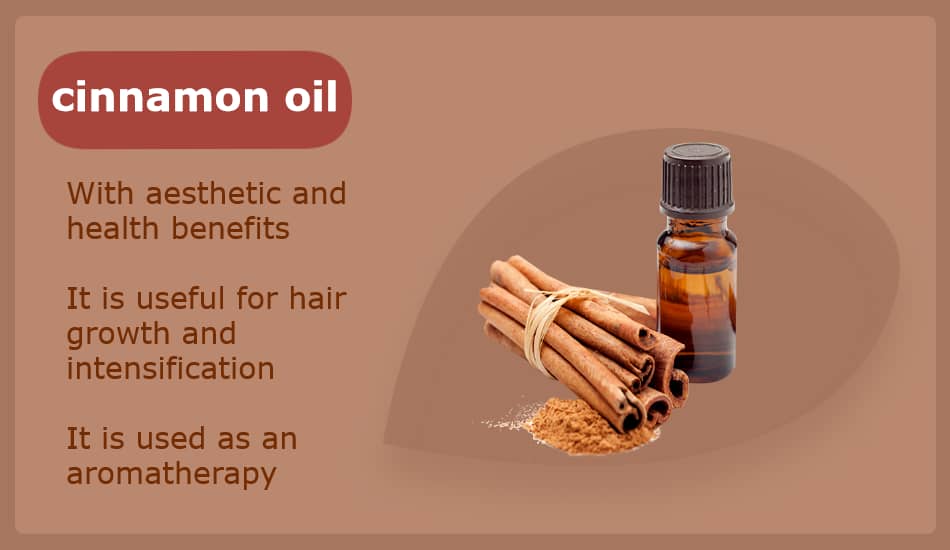
The desire for long, thick, healthy hair has led individuals to explore various natural remedies to promote growth. One such remedy that has gained popularity is cinnamon. Cinnamon, derived from the bark of the Cinnamomum tree, is known for its aromatic and culinary uses and potential health benefits. Advocates of cinnamon for hair growth claim that it can stimulate hair follicles, increase blood circulation to the scalp, and promote overall hair health.
This article examines the claims surrounding cinnamon’s efficacy for hair growth and explores the available scientific evidence.
Understanding Hair Growth
Before delving into the potential benefits of cinnamon, it is essential to understand the hair growth cycle. Hair follicles go through distinct phases, including the anagen (growth), catagen (transition), and telogen (resting) phases. The anagen phase is when active hair growth occurs, while the telogen phase is characterized by hair shedding. Any intervention targeting hair growth should ideally focus on stimulating and prolonging the anagen phase.
Cinnamon’s Nutritional Composition
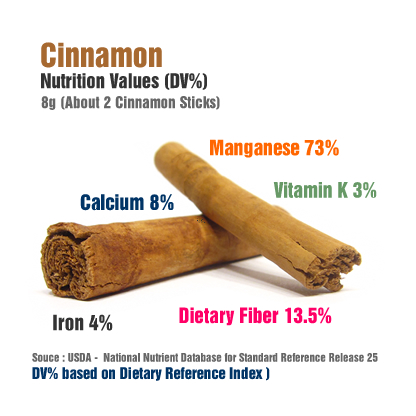
Cinnamon contains various bioactive compounds, including cinnamaldehyde, cinnamic acid, eugenol, and cinnamyl alcohol. These compounds possess antioxidant, anti-inflammatory, and antimicrobial properties. Additionally, cinnamon contains vitamins and minerals such as vitamin K, calcium, iron, and manganese, which are crucial in maintaining overall hair health.
RECOMMENDED READING – Cinnamon vs. Ceylon Cinnamon: Unveiling the Key Differences and Benefits
Cinnamon and Hair Growth:
- Stimulating Hair Follicles: Advocates suggest that cinnamon stimulates hair follicles and increases hair growth. While no direct scientific evidence supports this claim, some studies have shown that cinnamon extracts may promote the proliferation of certain types of cells.
However, these studies primarily focus on skin cells, and their relevance to hair follicles is not yet established.
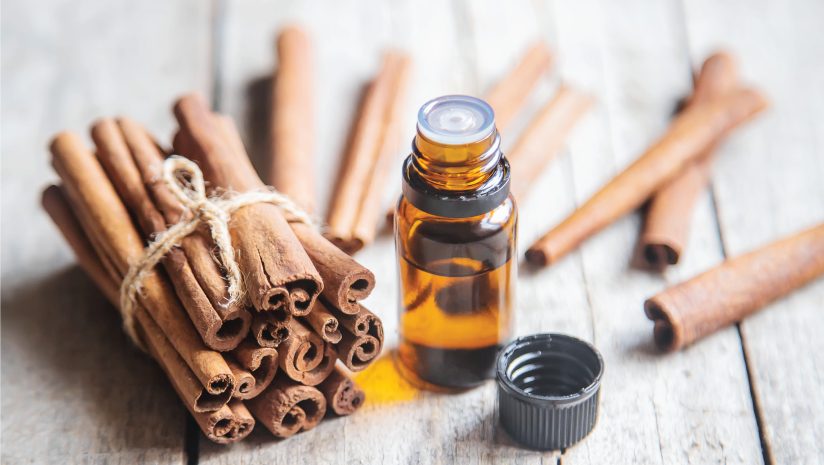
2. Enhancing Blood Circulation: Improved blood circulation to the scalp is believed to be beneficial for hair growth. Cinnamon contains compounds that may have vasodilatory effects, potentially increasing blood flow.
However, no studies specifically investigate the impact of cinnamon on scalp circulation or its direct correlation with hair growth.
RECOMMENDED READING – Cinnamon vs. Ceylon Cinnamon: Unveiling the Key Differences and Benefits
3. Antimicrobial and Anti-inflammatory Effects: Cinnamon’s antimicrobial and anti-inflammatory properties may help maintain a healthy scalp. Conditions like dandruff, scalp infections, and inflammation can impede hair growth. By addressing these issues, cinnamon might indirectly support hair health and development.
4. Antioxidant Protection: Oxidative stress can damage hair follicles and contribute to hair loss. Cinnamon’s antioxidant compounds may help neutralize free radicals and protect against oxidative damage, promoting a favorable hair growth environment.
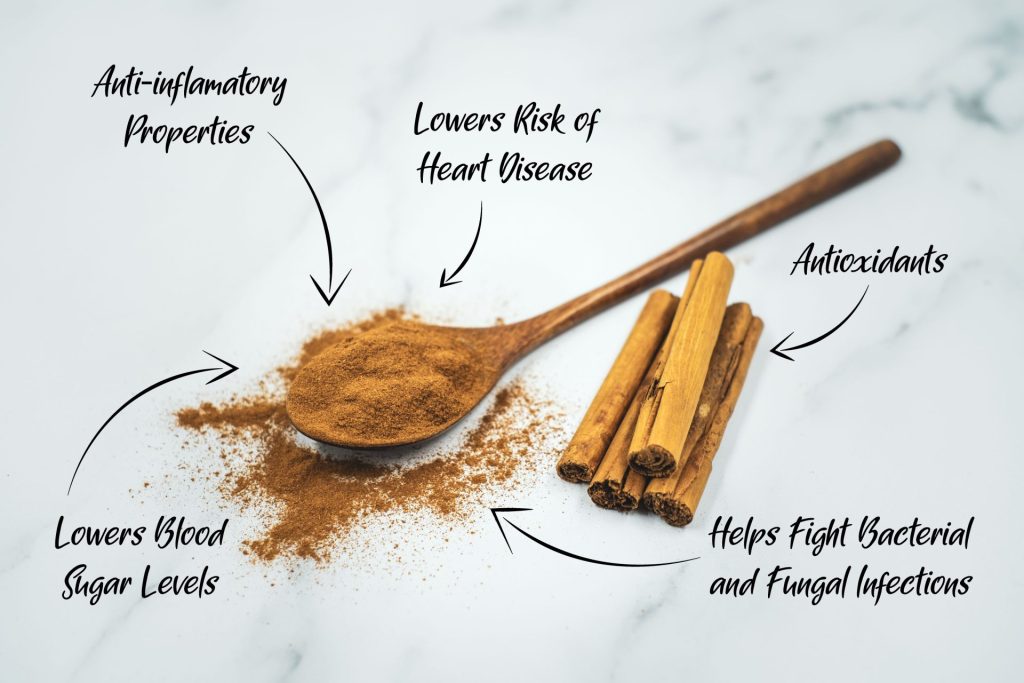
Scientific Studies and Evidence: While cinnamon has been extensively studied for its medicinal properties, research directly investigating its impact on hair growth is limited. Most studies examining the efficacy of cinnamon are conducted in vitro (in a laboratory setting) or on animal models. There is a lack of well-designed human studies that evaluate the effects of cinnamon, specifically on hair growth.
RECOMMENDED READING – Cinnamon vs. Ceylon Cinnamon: Unveiling the Key Differences and Benefits
Limitations and Considerations:
- Lack of Scientific Evidence: The absence of robust clinical trials exploring the direct impact of cinnamon on hair growth limits our understanding of its efficacy. Existing studies primarily focus on its medicinal properties, making it challenging to draw immediate conclusions about its role in hair growth.
- Individual Variation: Hair growth is influenced by various factors, including genetics, age, health conditions, and lifestyle. These variables can significantly impact an individual’s response to any intervention, including cinnamon. Therefore, results may vary among individuals.
- Potential Side Effects: Cinnamon is generally safe for consumption and topical use in moderate amounts. However, some individuals may experience skin irritation or allergic reactions. It is advisable to perform a patch test before using cinnamon topically and consult a healthcare professional if any adverse reactions occur.
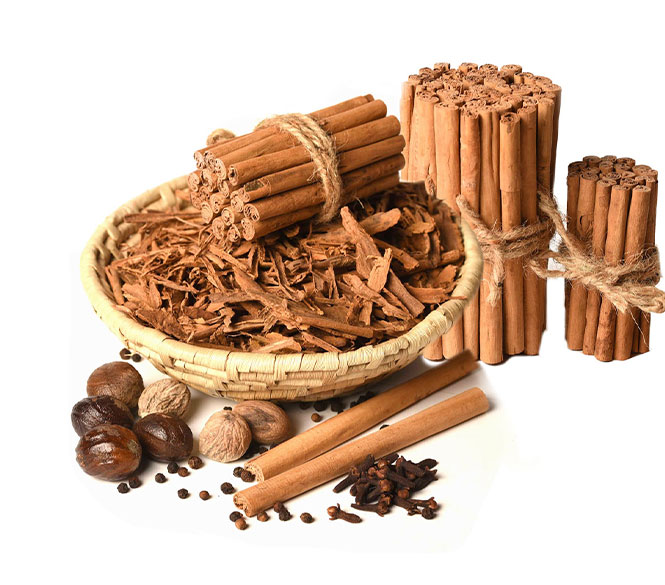
Conclusion: While cinnamon has numerous potential health benefits, the scientific evidence regarding its efficacy for hair growth remains inconclusive. The lack of well-designed human studies hinders definitive conclusions about cinnamon’s direct impact on hair follicles. However, cinnamon’s antimicrobial, anti-inflammatory, and antioxidant properties suggest it might indirectly contribute to maintaining a healthy scalp environment.
Further research, including large-scale clinical trials, is necessary to establish the effectiveness of cinnamon for hair growth. In the meantime, individuals seeking to improve hair growth should consider adopting a comprehensive approach that includes a balanced diet, proper hair care, and consulting with a healthcare professional for personalized advice.
RECOMMENDED READING – Cinnamon vs. Ceylon Cinnamon: Unveiling the Key Differences and Benefits
